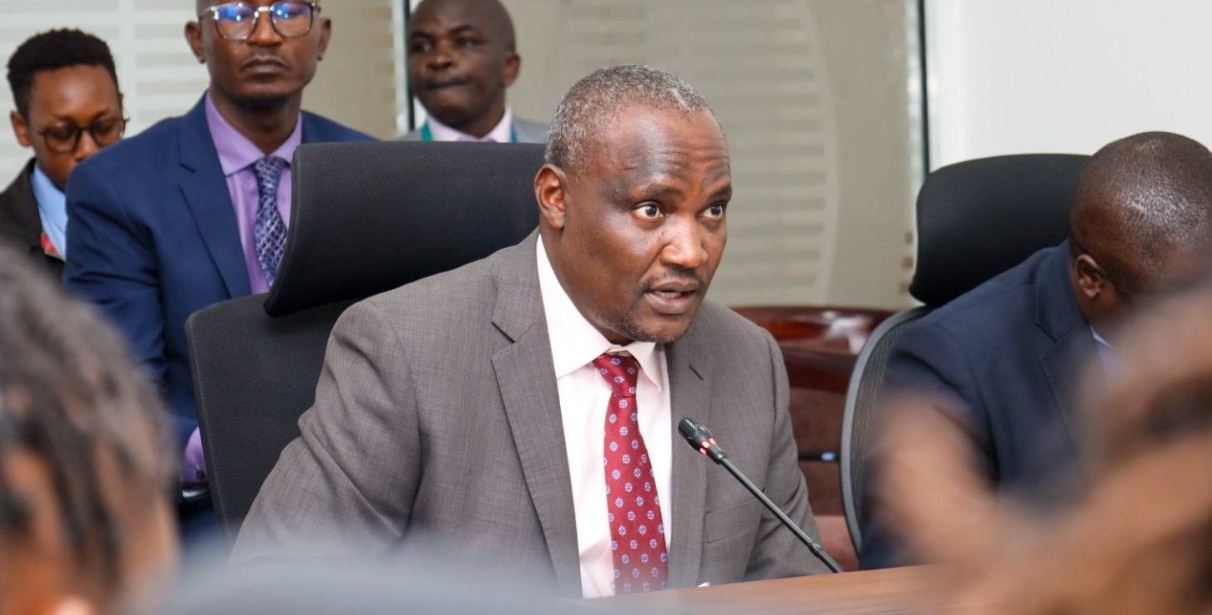Truth or Politics? The Battle Over Free Secondary Education in Kenya
 The future of free secondary education in Kenya is under scrutiny after a public clash between Suba South MP John Mbadi and National Assembly Majority Leader Kimani Ichung’wah. Mbadi alleges that President Ruto’s government is cutting FDSE (Free Day Secondary Education) funding due to financial constraints, while Ichung’wah insists the program remains intact. This political standoff has sparked national debate about the sustainability of publicly funded education in Kenya.
The future of free secondary education in Kenya is under scrutiny after a public clash between Suba South MP John Mbadi and National Assembly Majority Leader Kimani Ichung’wah. Mbadi alleges that President Ruto’s government is cutting FDSE (Free Day Secondary Education) funding due to financial constraints, while Ichung’wah insists the program remains intact. This political standoff has sparked national debate about the sustainability of publicly funded education in Kenya.
Mbadi recently raised alarm over the government’s alleged move to cut back funding for Free Day Secondary Education (FDSE), claiming the state can no longer afford the Ksh 22,000 capitation per student. Ichung’wah, however, dismissed the claims as false and misleading, insisting the government remains committed to supporting education.
This debate has sparked national concern, with many parents, educators, and youth wondering what lies ahead for public education in Kenya.
The Origins of Free Education in Kenya
Kenya’s journey toward free education began in 2003, when the government launched the Free Primary Education (FPE) program under President Mwai Kibaki. This policy eliminated school fees for primary learners, leading to a massive increase in enrollment especially among children from low-income families.
Introduced in 2008, the Free Day Secondary Education (FDSE) program was a major step in expanding free secondary education in Kenya by removing tuition fees. This initiative aimed to increase access to secondary schooling by covering tuition fees for students attending public day schools. Each learner was allocated a government capitation of about Ksh 22,244 per year.
These efforts marked significant milestones in Kenya’s pursuit of inclusive and affordable education for all.
The Political Clash: Mbadi vs. Ichung’wah
Speaking during a public event, MP John Mbadi alleged that President Ruto’s administration is struggling to finance the FDSE program and has quietly cut funding. According to him, the government can no longer sustain the Ksh 22,000 per student — raising fears that the era of free secondary education may be coming to an end.
Kimani Ichung’wah quickly responded, rubbishing the claims and defending the government’s education policies. He stated that there is no plan to abolish free education and accused the opposition of spreading panic.
The sharp exchange between the two leaders has intensified scrutiny over the government’s budget priorities and sparked debate on whether the current model of free education is sustainable.
Public Concern Grows
Although official statements deny any withdrawal of free education, many families argue that free secondary education in Kenya feels less affordable today due to hidden school costs, uniforms, and remedial fees. These “extra charges” often make education feel less free, especially for families in economically disadvantaged regions.
Online discussions reflect growing frustration and uncertainty, with many Kenyans demanding clarity from the Ministry of Education.
What’s at Stake?
The free education policy has played a critical role in reducing dropout rates, improving literacy, and promoting gender equity in schools. Any policy shift real or perceived could reverse these gains and push thousands of students out of school.
With Kenya still recovering from economic strain, and a ballooning public debt, social programs like education are under pressure. The Mbadi-Ichung’wah clash is just one example of the tensions playing out in the public sphere.
While it’s still unclear whether free secondary education is truly under threat, this political back-and-forth highlights deeper questions about transparency, funding priorities, and the future of education in Kenya. Kenyans are speculating whether, under political pressure or budgetary strain, the commitment to free secondary education in Kenya must be protected for the nation’s youth to thrive.
At Research8020, we believe in evidence-based policy, equitable access to education, and the importance of holding power to account. As a leading market and social research firm, we urge policymakers, citizens, and civil society to safeguard the right to free, quality education and to ensure transparency in budgetary commitments that affect Kenya’s youth.
To learn more about how data can inform inclusive development and social accountability, visit us at 
Together, let’s build a Kenya where education remains a right not a privilege
